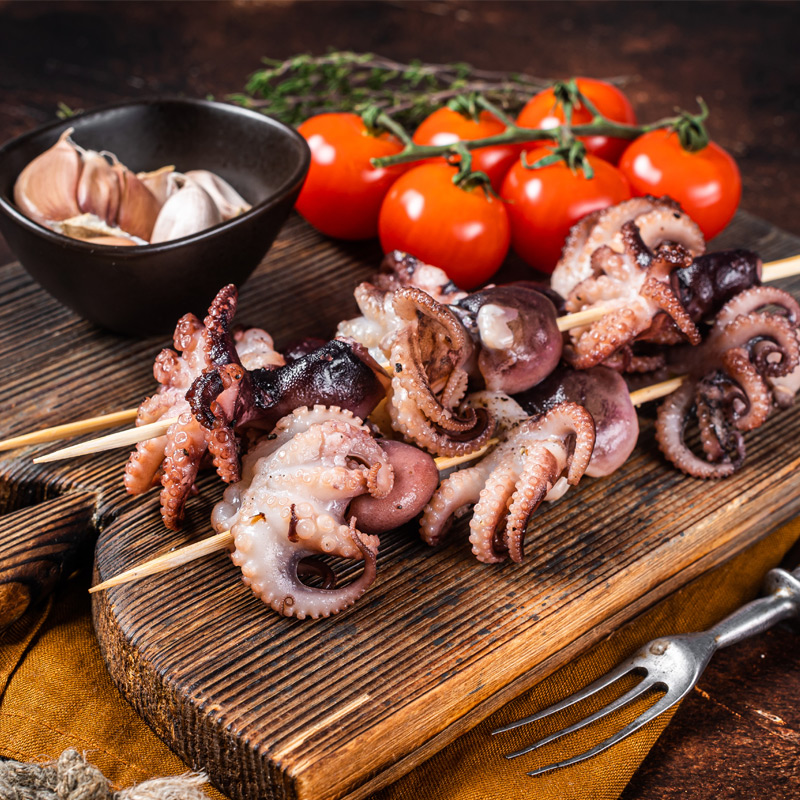
100 gr |
-- |
|
|---|---|---|
| Carbohydrate (gr) | 15.04 |
4928.47 |
| Protein (gr) | 3.59 |
1176.23 |
| Fat (gr) | 12.46 |
4083.43 |
| Fiber (gr) | 1.36 |
445.97 |
| Cholesterol (mg) | 14.64 |
4795.8 |
| Sodium (mg) | 325.27 |
106557.75 |
| Potassium (mg) | 392.16 |
128471.4 |
| Calcium (mg) | 78.15 |
25603.27 |
| Vitamin A (mg) | 46.04 |
15084.01 |
| Vitamin C (mg) | 6.16 |
2019.31 |
| Iron | 0.62 |
203.1 |
The octopus, a member of the cephalopod class and the mollusk family, is an extraordinary aquatic animal with unique biological features and culinary appeal. Its soft, boneless body is sac-like, housing internal organs, and it is complemented by eight strong external arms. These arms are typically reddish-brown in color, and its large, bulbous head adds to its distinct appearance.
What sets the octopus apart is its three hearts and nine brains, making it a marvel of marine biology. Its adaptability and intelligence have fascinated researchers and enthusiasts alike. Additionally, the octopus is a prized delicacy in various cuisines around the world.
Calories in octopus meat are 164 calories per 100 grams.
The octopus is renowned for its soft, pliable body, which allows it to squeeze into tight spaces and evade predators. Each of its eight arms is lined with suction cups that enable it to grasp and manipulate objects. This functionality, combined with its exceptional camouflage abilities, makes it one of the most versatile marine creatures.
Octopus meat is white, tender, and has a mild, slightly sweet flavor, making it a sought-after ingredient in gourmet seafood dishes. Its nutritional profile is equally impressive, providing essential nutrients such as protein, omega-3 fatty acids, and vitamins like B12. These nutrients contribute to its reputation as a superfood, believed to aid in the treatment and prevention of various health conditions.
Octopus is a relatively low-calorie option, offering both health benefits and a luxurious dining experience. It is a staple in Mediterranean, Asian, and other coastal cuisines, where it is often grilled, boiled, or incorporated into stews and salads.
Octopus has a long history of being featured in traditional diets, particularly in regions near the sea. It is often associated with festivals and special occasions, symbolizing abundance and luxury. Due to its labor-intensive harvesting and preparation, octopus is considered a premium seafood item, commanding high prices in global markets.